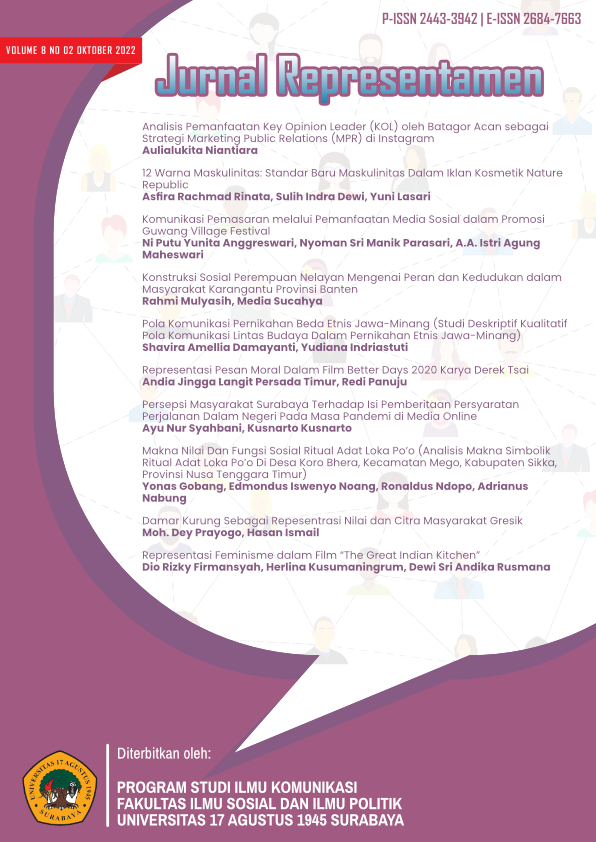Komunikasi Pemasaran melalui Pemanfaatan Media Sosial dalam Promosi Guwang Village Festival
DOI:
https://doi.org/10.30996/representamen.v8i2.7327Abstract
The Covid-19 pandemic has paralyzed various sectors in Bali, especially the tourism sector. The recovery of various tourism destinations after the pandemic is a responsibility for tourism actors and all levels of society. One of the recovery steps taken is to carry out the Guwang Village Festival. The implementation of the Guwang Village Festival aims to revive several tourist destinations in Guwang village, as well as introduce various works of art from Guwang Village SMEs. This study uses a qualitative approach, with three data collection technique which include observation, documentation, and interview techniques. The results of this study are that promoting the Guwang Village Festival is carried out using the AIDDA communication model consisting of Awareness, Interest, Desire, Decision, and Action. The use of the AIDDA communication model was carried out through the use of Instagram social media so that the Guwang Village Festival managed to get 10.000 visits. Utilization od social media is done by presenting information, conducting social interactions, and providing entertainment facilities.
Keywords: Marketing Communication, Social Media
Downloads
Downloads
Published
Issue
Section
License
Authors whose manuscript is published will approve the following provisions:
The right to publication of all journal material published on the jurnal representamen website is held by the editorial board with the author's knowledge (moral rights remain the property of the author).
The formal legal provisions for access to digital articles of this electronic journal are subject to the terms of the Creative Commons Attribution-ShareAlike (CC BY-SA) license, which means Jurnal Representamen reserves the right to store, modify the format, administer in database, maintain and publish articles without requesting permission from the Author as long as it keeps the Author's name as the owner of Copyright.
Printed and electronic published manuscripts are open access for educational, research and library purposes. In addition to these objectives, the editorial board shall not be liable for violations of copyright law.











